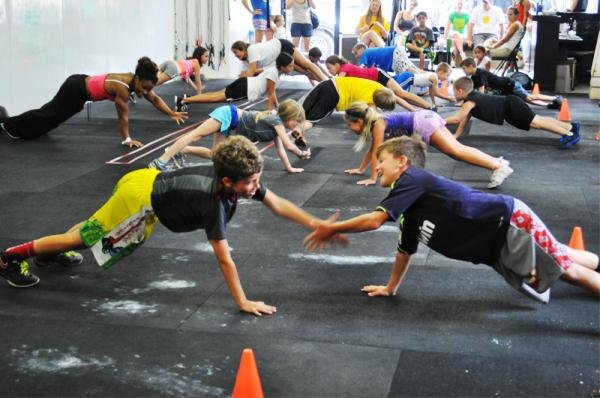Healthy Life
Muscle growth and building
by Uperform

A widely held belief is that weight training performed during puberty/adolescence may stunt growth by damaging the growth plates. For this reason, it is proposed that children and adolescents should perform only bodyweight exercises and not use weights (dumbbells, kettlebells, etc.) during this period of their lives.
This belief is at odds with current scientific evidence. Indeed, many studies have investigated this subject and show that weight training has no negative impact on bone growth:
“Current research indicates that resistance training is a safe, effective and useful activity for children and adolescents” (1)
“Several studies provide consistent results supporting the benefit of intense and repeated physical exertion in young subjects. Improvements in motor skill and body composition, in terms of increased lean mass, reduced fat mass, and improved bone health, have been widely documented, particularly if sport is started early, when the subjects were pubescent. It can therefore be concluded that muscle building is safe and healthy for children and adolescents. » (2)
“Resistance training programs are relatively safe and do not negatively impact the growth and maturation of young people” (3)
“Few studies have examined the long-term effect of resistance training on growth. The results of the latter invalidate the popular belief that resistance training stunts growth. Scientific evidence indicates that resistance training increases IGF-1 and has no deleterious effect on growth. » (4)
On the other hand, research shows that when resistance training is programmed appropriately and executed with good technique, it brings various benefits to the young athlete:
- Increase in strength, speed and power
- Improved body composition
- Stronger bones
- Reduced risk of injury
Unfortunately, this belief about weight training often comes from well-meaning parents who don’t realize that sport subjects their children’s bones to much greater forces than those found in gyms (jumps, sprints, etc.) .
When can a child start resistance training? According to the Australian Association of Physical Trainers: “A child can start resistance training from the age of 6 provided they have the maturity to follow clear instructions and an appreciation of the dangers present in training”
Do not hesitate to contact us for any further information.
WE CARE, U PERFORM
1. Faigenbaum AD, Myer GD. Resistance training among young athletes: safety, efficacy and injury prevention effects. Br J Sports Med. janv 2010;44(1):56 63.
2. Barbieri D, Zaccagni L. Strength training for children and adolescents: benefits and risks. Coll Antropol. mai 2013;37 Suppl 2:219 25.
3. Malina RM. Weight training in youth-growth, maturation, and safety: an evidence-based review. Clin J Sport Med Off J Can Acad Sport Med. nov 2006;16(6):478 87.
4. Falk B, Eliakim A. Resistance training, skeletal muscle and growth. Pediatr Endocrinol Rev PER. déc 2003;1(2):120 7.
Cet article est basé sur le blog de PhysioNetwork écrit par Timothy Rowland
https://www.physio-network.com/weight-training-stunts-growth-an-evidence-based-myth-buster/